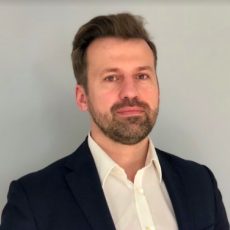Wind Prospect Polska provides world class technical and commercial consultancy services to the renewable energy sector, at all stages of a project. Their offering includes technical due diligence, energy yield assessment, construction monitoring and asset management.
Can you give a brief introduction to Wind Prospect and the company’s presence in Poland?
Wind Prospect is a British born company which entered the Polish market approximately 11 years ago. When the crisis came and wind development was halted, the company thought of exiting the Polish market. Instead, a few of us proposed to take over the business on a franchise basis.
The PV market picked up soon after and we expanded our offering to this area. Today, we have the largest portfolio in Poland in terms of technical advisory for PV. The wind market mainly comprises of transactions of old assets, but even so we provided services for approximately 40 transactions just in 2019.
How did the crisis period affect the competitiveness of your sector? Did you see many of your peers exiting the market?
Some gave up on Poland, especially foreign companies, but the advisory segment is still fairly competitive. We are happy with our decision to stay - our resilience and the strong relationships we developed with customers during this time are paying off now. We pride ourselves with coming out on the other side as the largest advisor for PV projects in Poland.
Are you seeing many new investments coming into the renewables market in Poland? If so, what is driving investors’ interest here?
This market has changed dramatically over the last few years and it is safe to say Poland is becoming one of the most attractive spots in Europe. The wind market is still slow because of regulations, but these are under review and likely to be adjusted. PVs on the other hand are booming and we are seeing plenty of investment coming in.

Naturally investors are attracted by the possibility of high internal rates of return (IRR). This is possible because Poland has a transparent and competitive auction system, and the capacity the country wants to develop is reasonably high. The political situation is also favorable, especially now that the government openly supports projects in renewable energy.
You assist clients throughout the entire project life cycle, what stages tend to pose the most challenges for developers?
Over the last two years, the major challenge has been financing. Sudden changes that were introduced led to a situation of crisis, where many businesses faced losses. Understandably, banks became weary of pouring money into this sector. The situation is changing, however.

PVs are doing well and this did not go unnoticed by banks, which are confident to provide them with financing. There is still no proper financing scheme for wind projects, but I believe that this will also change in the near future.
What are your views on the construction of Ostroleka power plant? Do you consider this project a necessity for Poland’s energy security?
Ostroleka is the last coal fired power plant that will be built in our country. From a grid standpoint, the project is useful because it adds balance and reliability. But from an economic perspective it does not seem ideal. It is located quite far from the mines and transport of coal can be very costly. The construction itself will also be expensive, in fact the assumed budget has already been surpassed. This significantly increases the return on investment period.
Do you have a final message to investors about the renewable energy sector in Poland?
Poland is still seen as an emerging market, but it is extremely safe compared to its peers. I want to encourage investors to come over and fight for a green future together.





